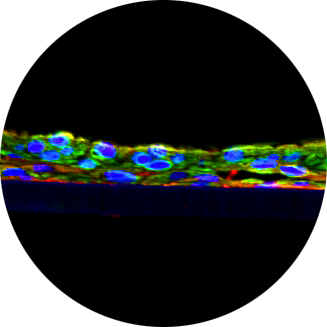Efficacy and Tolerability of a Novel Topical Treatment for the Neck: A Randomized, Double-Blind Regimen-Controlled Study
- TR Number: 1010
- Authors: Elizabeth T Makino, Kuniko Kadoya, Robin Chung, Lily Jiang, Mouna Mikati, Rahul C Mehta
- Materials Tested: cosmetic cream
- Institution: skin rejuvenation, skin longevity, anti-wrinkling
- Link to PDF: https://pubmed.ncbi.nlm.nih.gov/33538566/
The neck plays a telling role as an age indicator. Due to its anatomy and function, neck skin ages differently than facial skin and special considerations need to be taken when providing treatment. A randomized, double-blind, regimen-controlled study was conducted to assess the efficacy and tolerability of a novel topical cosmetic cream (NCC) specifically tailored to address the signs of skin aging of the neck and décolletage. Twice daily application of NCC significantly improved skin sagging/laxity of the neck as well as the appearance of fine and coarse lines/wrinkles, crepiness, tactile roughness, overall skin texture, hyperpigmentation, skin tone evenness, and radiance. NCC also significantly improved the appearance of fine and coarse lines/wrinkles, tactile roughness, hyperpigmentation, skin tone evenness, and radiance of the décolletage. Investigator assessments were corroborated by objective cutometer measurements that demonstrated improved skin firmness and elasticity. In vitro analysis in human 3D skin models show that stimulation of neocollagenesis and neoelastogenesis as well as support of cellular proteostasis through proteasome and autophagy activation are potential mechanisms of action for the observed clinical outcomes. J Drugs Dermatol.

